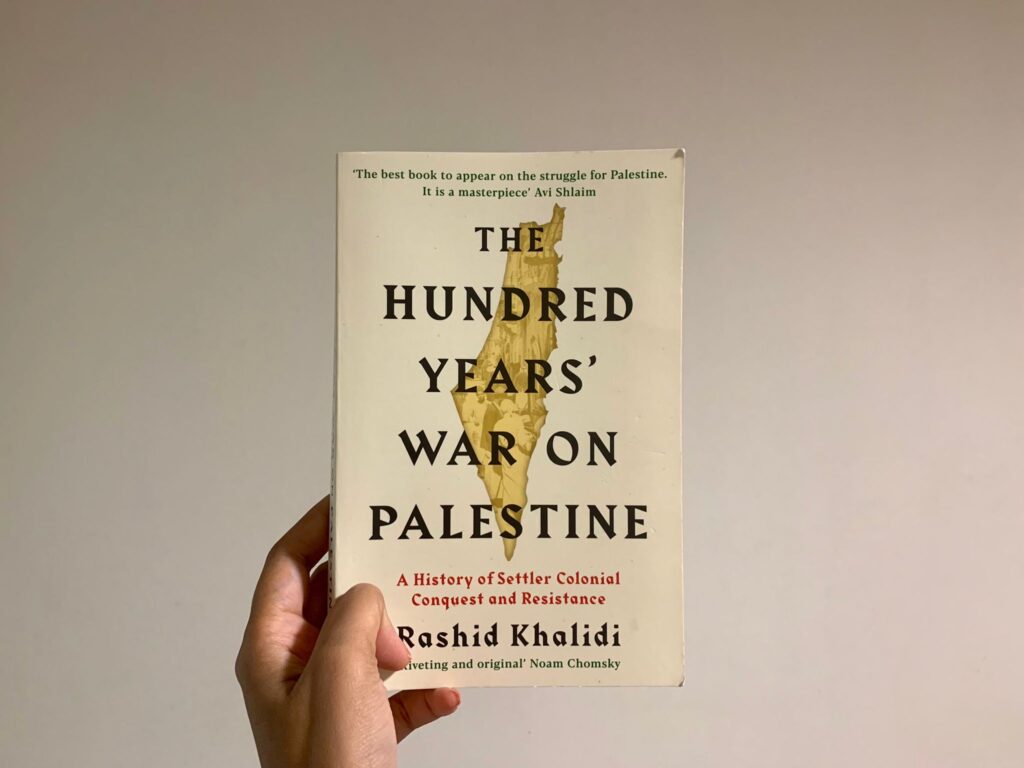My thoughts after reading The Hundred Years’ War on Palestine

When I first heard about the war between Palestine and Israel that broke out in October 2023, I had little to no knowledge about the history of conflict between the two states and what was its genesis.
I was curious to learn more about the Palestine-Israel conflict and did a quick Google search to find a few books that would give me some, if not in intricate details, understanding of the history. People around me had already been forming opinions on who is right or wrong, mostly based on what they saw on the news channels or on WhatsApp forwards; however, at this stage, I have started questioning the veracity of these two sources, given how easily narratives and content on both mediums can be influenced by surface-level misinformation. So, I knew I had to at least try and get a fuller, better picture of the story.
As mentioned, a quick Google search led me to several sources, but two books stood out across multiple recommendations – The Hundred Years’ War on Palestine by Rashid Khalidi and A Day in the Life of Abed Salama by Nathan Thrall (more about it on another blog post soon). However, I must confess that it took me over five months to actually pick up these books and so, towards the end of last month, I finally started with my first read – The Hundred Years’ War on Palestine.
This 350+ page book was truly eye-opening, offering a well-researched and deeply personal account of the century-long conflict between Israel and Palestine. Drawing from his family’s experience and his extensive scholarship, Khalidi offers a holistic and chronological view of the war that began with the Balfour Declaration of 1917 and is still going on to this date.
Reading through the course of developments that took place – from the Nakba of 1948-49 and the Six-Day War of 1967 to the Lebanese War of 1982 and the Second Intifada of 2000-2005 – the book provides a narrative that is different from what the mainstream Western perspective usually publicise regarding the Israel-Palestinian conflict.
In today’s time, when the war between the two nations rages on, the book was a stark reminder that there is a parallel reality, which I cannot fathom, but that exists for the people who are caught in between these conflicts. The book sheds light on how the lives of innocent civilians’ rest in the hands of the global powerhouses, who are far removed from the war zone and yet, continue to be the key influencers of the region’s policies and in effect, decision-makers of these people’s lives. Throughout, the book illustrates how rarely the voices of those involved in the struggle have been considered while making decisions for them.
Now I have to come clean and say that this book gives a primarily Palestinian perspective, so to form an opinion on who is in the right and who is in the wrong based on a single point of view would be unfair. To form a balanced view about anything, I think that it is important to consider multiple perspectives and understand the different sides of the conflict. However, I do believe that killing men, women and children – just because they belong to a nationality, ethnicity, race or religion – is absolutely wrong.
As I write this in August 2024, nearly 10 months later, the fighting between Palestine and Israel has not ceased. It has been reported that more than 41,000 people have been killed in this war as of the time of writing.[1]
Everyone has their own struggles in life but let us not forget that this alternate reality exists where people are dying because of war.
While I approach this topic as a curious reader rather than a scholar, I found Khalidi’s A Hundred Years’ War on Palestine to be an essential read. I would highly recommend it to anyone who is looking to gain a deeper understanding of the Palestine-Israel conflict and the broader implications it continues to have on the world stage.
Have you read this book, or do you have any other recommendations that offer a different perspective? Share your thoughts in the comments below – I would love to hear your take!
Source(s):
[1] Knell, Y., Thomas, M., and Brown, P. (August 2024). More than 40,000 killed in Gaza, Hamas-run health ministry says. BBC https://www.bbc.com/news/articles/cn49v0nzv3ko
Disclaimer: Some of the links on this page are affiliate links, which means I may earn a small commission at no extra cost to you if you make a purchase through them. This helps support the content I create and allows me to continue providing valuable insights. Rest assured, I only recommend products or services I genuinely find helpful or believe could be of value to you. Thank you for your support!
